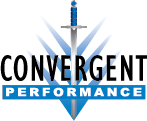If you are in a position in your own organization to evaluate incoming talent (let’s say you take part in the selection process for new hire crewmembers) or evaluate the talent you already have (you might be a Chief Pilot, Check Airman or FAA Designee, let’s say) you are constantly being bombarded with the threat of the upcoming global “pilot shortage.” Some would say we’re already in it, and organizations are right now being forced to cope with the pressures and risks this brings to the business. These pressures primarily center on the cost of training new crew members and maintaining (or better still – improving) their skills and abilities. And if you compete with other departments for limited budget resources, you know that squeezing training for dollars only makes the current talent shortage more acute. If all this sounds familiar, you’ve grown tired of asking yourself the question, “how do we get through this without inviting more risk to our operation of an incident or accident?”
You’re not alone. As aircraft and airspace grows more complicated than ever before, organizations are plowing into the future with the twin threats of declining experience and pressures to squeeze costs from training. Pick any high-risk/high-reliability endeavor from flying to healthcare, energy to finance and countless others: the forces working against becoming a truly “World Class” operation increase every day. But there are answers: and they aren’t just conjecture – there’s plenty of science behind them and more than ever before they can be expressed in terms that every pilot and flight crew member can understand. If you want to be “world-class” in part because of the way that you train, you can, even in the contemporary environment that most flight departments operate in. You just have to be willing to work hard at it. I’m not just stating the obvious.
Among the best researchers and writers hard at work in the nascent field of “expert performance” are Gary Klein and Geoff Colvin. In his latest book, “Seeing What Others Don’t” Gary Klein observes that performance is improved primarily by reducing errors and gaining expertise; spending much of the rest of the book on a discussion of how to improve expertise, and how hard most organizations can find this task to be (and how some of these organizations are succeeding). Colvin focuses on the guts of performance improvement, the hard discipline of “deliberate practice” – deliberate practice that is guided by the best experts the organization has:
“Deliberate practice is characterized by several elements, each worth examining. It is activity designed specifically to improve performance, often with a teacher’s help; it can be repeated a lot; feedback on results is continuously available; it’s highly demanding mentally, whether the activity is purely intellectual, such as chess or business-related activities, or heavily physical, such as sports; and it isn’t much fun.”
The message from these and other top researchers in the field of expertise and expert performance is clear and unwavering: You have to work not just on error reduction (a discipline most organizations do with routine) but on building expertise; and building expertise requires a commitment that only the best organizations are willing to pursue, for all its difficulties.
We have identified 9 areas – the 9 Principles – where organizations can apply deliberate practice to improve expertise, which along with error-reduction is a multiplier of overall performance on the 21st-Century flight deck. We have also gone on the record unapologetically by recommending that committing oneself or one’s organization to going beyond “Normal Excellence” isn’t going to be adopted by everyone – in fact, it may not be adopted by most people or organizations. In the increasingly competitive market for talent as well as the increasingly complex and demanding environment in which aviators are asked to perform in, pursuing this path will likely result in a competitive performance edge. Again, Geoff Colvin:
“The reality that deliberate practice is hard can even be seen as good news. It means that most people won’t do it. So your willingness to do it will distinguish you all the more.”
As has been the case in countless successful enterprises over the past century of modern business, an unconventional path to improved performance that seems to be harder in the short run, turns out to be “easier” in the long run.
Until our next post, fly safe and fly first.
*References: Seeing What Others Don’t… The Remarkable Ways We Gain Insights. Gary Klein. Public Affairs, 2013 and Talent is Overrated… What Really Separates World-Class Performers from Everybody Else. Penguin Group, 2008.
